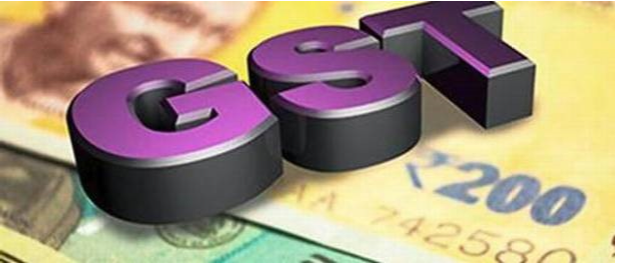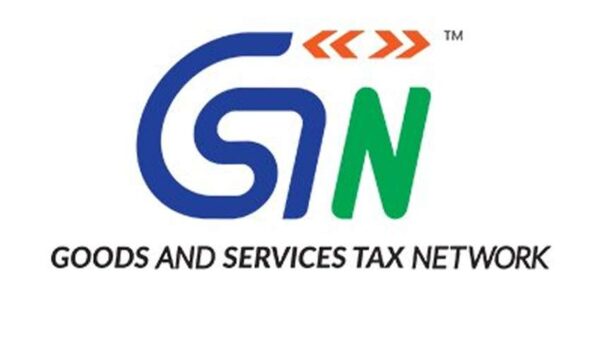The Delhi High Court in its recent ruling in the case of M/s Proex Fashion Pvt. Ltd while quashing the attachment order of Bank Account issued by a GST Authority (Revenue) has held that power to attach the bank account must be exercised only in strict compliance with the statutory power, and cannot be extended to cover situations that are not expressly contemplated by section 83 of the CGST Act, 2017.
Facts of the Case:
- The petitioner, Proex Fashion Pvt. Ltd. challenged a communication by which the bank account of the petitioner in the respondent Bank has been attached by respondent authority (GST Department) , purportedly under Section 83 of the CGST Act, 2017.
- It has been contended by the petitioner, that the GST authorities have taken action against the petitioner under Section 83 of the Act, pursuant to proceedings initiated under Section 71 of the Act, whereas Section 83 of the Act, on its terms, cannot be invoked in such a situation.
- The Revenue on the other hand, contended that proceedings were initiated against the petitioner pursuant to a communication from the Directorate General of Analytics and Risk Management (DGARM)
- As per Revenue, the petitioner was declared as a „risky exporter‟, and an attempt was made to elicit certain information and documents from the petitioner. However, according to revenue, several communications addressed to the petitioner at its registered office were returned undelivered. Proceedings under Section 71 of the Act were therefore initiated against the petitioner, and the attachment of the bank account under Section 83 of the Act is pursuant to those proceedings.
Order of Delhi High Court:
The single-judge bench of Justice Prateek Jalan deliberated that the attachment of a bank account entails serious consequences to the assessee, particularly in the case of a running concern such as the petitioner herein. The power to attach the bank account must therefore be exercised only in strict compliance with the statutory power, and cannot be extended to cover situations that are not expressly contemplated by the section. Absent the statutory precondition for the exercise of the power of attachment, any order under Section 83 is wholly illegal and unsustainable.
Accordingly the Court, while quashing the order of the Revenue, held that the impugned order was ultra vires the statutory powers of the GST authority.
Relevant Provisions of CGST Act:
The relevant provisions of the CGST Act are set out below:
Section 67. Power of inspection, search and seizure:
(1) Where the proper officer, not below the rank of Joint Commissioner, has reasons to believe that––
(a) a taxable person has suppressed any transaction relating to supply of goods or services or both or the stock of goods in hand, or has claimed input tax credit in excess of his entitlement under this Act or has indulged in contravention of any of the provisions of this Act or the rules made thereunder to evade tax under this Act; or
(b) any person engaged in the business of transporting goods or an owner or operator of a
warehouse or a godown or any other place is keeping goods which have escaped payment of tax or has kept his accounts or goods in such a manner as is likely to cause evasion of tax payable under this Act, he may authorise in writing any other officer of central tax to inspect any places of business of the taxable person or the persons engaged in the business of transporting goods or the owner or the operator of warehouse or godown or any other place.
(2) Where the proper officer, not below the rank of Joint Commissioner, either pursuant to an inspection carried out under sub-section (1) or otherwise, has reasons to believe that any goods liable to confiscation or any documents or books or things, which in his opinion shall be useful for or relevant to any proceedings under this Act, are secreted in any place, he may authorise in writing any other officer of central tax to search and seize or may himself search and seize such goods, documents or books or things:
Provided that where it is not practicable to seize any such goods, the proper officer, or any officer authorised by him, may serve on the owner or the custodian of the goods an order that he shall not remove, part with, or otherwise deal with the goods except with the previous permission of such officer:
Provided further that the documents or books or things so seized shall be retained by such officer only for so long as may be necessary for their examination and for any inquiry or proceedings under this Act.
(3) The documents, books or things referred to in subsection (2) or any other documents, books or things produced by a taxable person or any other person, which have not been relied upon for the issue of notice under this Act or the rules made thereunder, shall be returned to such person within a period not exceeding thirty days of the issue of the said notice.
(4) The officer authorised under sub-section (2) shall have the power to seal or break open the door of any premises or to break open any almirah, electronic devices, box, receptacle in which any goods, accounts, registers or documents of the person are suspected to be concealed, where access to such premises, almirah, electronic devices, box or receptacle is denied.
(5) The person from whose custody any documents are seized under sub-section (2) shall be entitled to make copies thereof or take extracts therefrom in the presence of an authorised officer at such place and time as such officer may indicate in this behalf except where making such copies or taking such extracts may, in the opinion of the proper officer, prejudicially affect the investigation.
(6) The goods so seized under sub-section (2) shall be released, on a provisional basis, upon execution of a bond and furnishing of a security, in such manner and of such quantum, respectively , as may be prescribed or on payment of applicable tax, interest and penalty payable, as the case may be.
(7) Where any goods are seized under sub-section (2) and no notice in respect thereof is given within six months of the seizure of the goods, the goods shall be returned to the person from whose possession they were seized:
Provided that the period of six months may, on sufficient cause being shown, be extended by the proper officer for a further period not exceeding six months.
(8) The Government may, having regard to the perishable or hazardous nature of any goods, depreciation in the value of the goods with the passage of time, constraints of storage space for the goods or any other relevant considerations, by notification, specify the goods or class of goods which shall, as soon as may be after its seizure under sub-section (2), be disposed of by the proper
officer in such manner as may be prescribed.
(9) Where any goods, being goods specified under subsection (8), have been seized by a proper officer, or any officer authorised by him under sub-section (2), he shall prepare an inventory of such goods in such manner as may be prescribed.
(10) The provisions of the Code of Criminal Procedure, 1973, relating to search and seizure, shall, so far as may be, apply to search and seizure under this section subject to the modification that sub-section (5) of section 165 of the said Code shall have effect as if for the word “Magistrate”, wherever it occurs, the word “Commissioner” were substituted.
(11) Where the proper officer has reasons to believe that any person has evaded or is attempting to evade the payment of any tax, he may, for reasons to be recorded in writing, seize the accounts, registers or documents of such person produced before him and shall grant a receipt for the same, and shall retain the same for so long as may be necessary in connection with any proceedings under this Act or the rules made thereunder for prosecution.
(12) The Commissioner or an officer authorised by him may cause purchase of any goods or services or both by any person authorised by him from the business premises of any taxable person, to check the issue of tax invoices or bills of supply by such taxable person, and on return of
goods so purchased by such officer, such taxable person or any person in charge of the business premises shall refund the amount so paid towards the goods after cancelling any tax invoice or bill of supply issued earlier.
Section 71. Access to business premises:
(1) Any officer under this Act, authorised by the proper officer not below the rank of Joint Commissioner, shall have access to any place of business of a registered person to inspect books of account, documents, computers, computer programs, computer software whether installed in a computer or otherwise and such other things as he may require and which may be available at such place, for the purposes of carrying out any audit, scrutiny, verification and checks as may be necessary to safeguard the interest of revenue.
(2) Every person in charge of place referred to in subsection (1) shall, on demand, make available to the officer authorised under sub-section (1) or the audit party deputed by the proper officer or a cost accountant or chartered accountant nominated under section 66—
(i) such records as prepared or maintained by the registered person and declared to the proper
officer in such manner as may be prescribed;
(ii) trial balance or its equivalent;
(iii) statements of annual financial accounts, duly audited, wherever required;
(iv) cost audit report, if any, under section 148 of the Companies Act, 2013;
(v) the income-tax audit report, if any, under section 44AB of the Income-tax Act, 1961; and
(vi) any other relevant record, for the scrutiny by the officer or audit party or the chartered accountant or cost accountant within a period not exceeding fifteen working days from the day when such demand is made, or such further period as may be allowed by the said officer or the
audit party or the chartered accountant or cost accountant.
Section 83. Provisional attachment to protect revenue in certain cases:
(1) Where during the pendency of any proceedings under section 62 or section 63 or section 64
or section 67 or section 73 or section 74, the Commissioner is of the opinion that for the purpose of protecting the interest of the Government revenue, it is necessary so to do, he may, by order in writing attach provisionally any property, including bank account, belonging to the taxable person in such manner as may be prescribed.
(2) Every such provisional attachment shall cease to have effect after the expiry of a period of one year from the date of the order made under sub-section (1).
READ / DOWNLOAD ORDER:
Read quality articles on GST authored by national level experts on the one and only exclusive GST portal CLICK HERE
***
Subscribe our portal and get FREE GST e-books , articles and updates on your e-mail.
Resolve your GST queries from national level experts on GST free of cost.
Frah Saeed is a law graduate specializing in the core field of indirect taxes and is the Co-founder of taxwallah.com. She has authored many publications on GST and is into full-time consultancy on GST to big corporates. She as a part of taxwallah.com heads a team comprising of Chartered Accountants and Advocates and plays a key role in our mission to disseminate GST knowledge to all.




